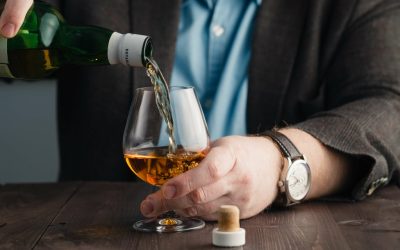Sober living
Consequences of Alcohol Use in Diabetics PMC
Alcohol consumption can exacerbate the diabetes-related lipid abnormalities, because numerous studies have shown that heavy drinking can alter lipid levels even in nondiabetics. Additionally, the symptoms of low blood sugar are similar to the symptoms of intoxication. Both include slurring words, trouble with balance or walking, fatigue, and confusion. Unless you know you need to check your blood sugar levels, both you and those around you might assume you’re drunk, rather than experiencing hypoglycemia.
As in hypoglycemia, confusion sets in as the brain begins to malfunction. Diabetes is a serious disease that affects nearly 29 million people in the United States [1]. Advances in diabetic care have resulted in an improvement in morbidity and mortality rates, and many persons with diabetes live full, productive lives. Drinking coffee might help lower your risk of developing type 2 diabetes by improving sugar metabolism over time, according to a 2018 review of studies. A large 2021 cohort study of more than half a million Chinese people suggests that daily consumption of green tea may lower the risk of type 2 diabetes. Reduced fat dairy contains the naturally occurring milk sugar lactose, so you’ll have to factor any dairy-based drinks into your total carbohydrate allowance for the day.
Do Diabetics Get Drunk Faster?
But if you don’t drink regularly, this doesn’t mean you should start. After all, other aspects of moderate drinkers’ lives may be behind the link. Within a few minutes of drinking alcohol, and for up to 12 hours afterward, alcohol can cause your blood glucose level to drop. After consuming alcohol, always check your blood glucose level to make sure it is in the safe zone. For example, studies have shown that for people who have type 2 diabetes, occasionally drinking alcohol may slightly reduce glucose levels. And those with diabetes need to bring down elevated glucose levels.
- According to the Centers for Disease Control and Prevention (CDC), one standard drink in the United States is equal to 14 grams (g) (0.6 ounces [oz]) of pure alcohol.
- Avoid sugary mixed drinks, as well as sweet wines or dessert wines.
- If you’re living with diabetes, talk to your doctor about how alcohol may impact your condition management plan, even if you only have an occasional alcoholic beverage.
- Make sure to check the packaging carefully to pick the right product for you.
Diabetes causes lower-than-normal production or function of insulin — the hormone that helps control your blood sugar levels — so blood sugar management is important (1). Alcohol consumption can interfere with blood sugar as well as the hormones needed to maintain healthy blood sugar levels. People who frequently consume a lot of alcohol can wipe out their energy storage in a few hours. After you drink alcohol, your blood sugar levels can drop up to 24 hours later. Check your blood sugar before and while you’re drinking and then again before you go to bed.
Sugar-free lemonade
However, with larger amounts of alcohol, serious hypoglycaemia can occur. Make sure someone you’re with knows about your diabetes and how to recognise and treat a hypo. You make a Bloody Mary by mixing vodka and tomato juice with different sauces and spices, depending on the recipe, and typically serve it with a celery stick. You don’t have to cut out all sweet stuff from your diet thanks to sugar substitutes. By Barbie Cervoni, RD
Barbie Cervoni MS, RD, CDCES, CDN, is a New York-based registered dietitian and certified diabetes care and education specialist.
- 5Disulfiram (Antabuse®) is a medication used to treat alcoholics.
- Most importantly, if individuals wish to engage in moderate drinking, they should first discuss it with their doctor.
- People with diabetes are twice as likely to have hypertension (high blood pressure) as those without.
The body tries to excrete excess glucose through the urinary tract by forcing the patient to urinate excessively (polyurea). As dehydration sets in, the body triggers a thirst reflex, causing the patient to drink more fluids to compensate (polydypsea). Unsweetened tea and coffee and all sugar-free beverages are good options. Some studies have suggested that red wine can have can diabetics get drunk a beneficial effect on diabetes, but the evidence remains uncertain. This sugary drink has also been linked to weight gain and tooth decay, so it’s best to leave it on the store shelf. You can discuss this with your healthcare team or dietitian to determine whether the amount of caffeine in your coffee or tea is worth factoring into your meal planning or diabetes care plan.
Can You Drink Safely With Type 2 Diabetes?
Diabetics clearly should avoid heavy drinking (i.e., more than 10 to 12 drinks per day), because it can cause ketoacidosis and hypertriglyceridemia. Moreover, heavy drinking in a fasting state can cause hypoglycemia and ultimately increase diabetics’ risk of death from noncardiovascular causes. Glycogen is a large molecule that consists of numerous glucose molecules and serves as a storage form of glucose in the tissues, particularly the liver.

Heavy drinking, particularly in diabetics, also can cause the accumulation of certain acids in the blood that may result in severe health consequences. Finally, alcohol consumption can worsen diabetes-related medical complications, such as disturbances in fat metabolism, nerve damage, and eye disease. The mechanisms underlying the development of alcoholic ketoacidosis are complex.